It has become a hard task to become Missionary of Africa nowadays. In the past, one needed “only” six years, two for philosophy, one for the spiritual year, three for theology and the job was done. Today the candidates have first to spend a year of preparation in a pre-first phase centre. The main goal is to give to those youth a better grounding in the language that they will need for their studies. Most of our candidates hail from African countries which have suffered (and sometimes still suffer) of war, rebellions and various economic and political forms of turmoil. Education suffers everywhere and is still suffering of the neglect of the upper class. Thus, our prospective candidates have first to consolidate the foundations before they can start building. The first year also gives us the chance to know them better and to make a better discernment.
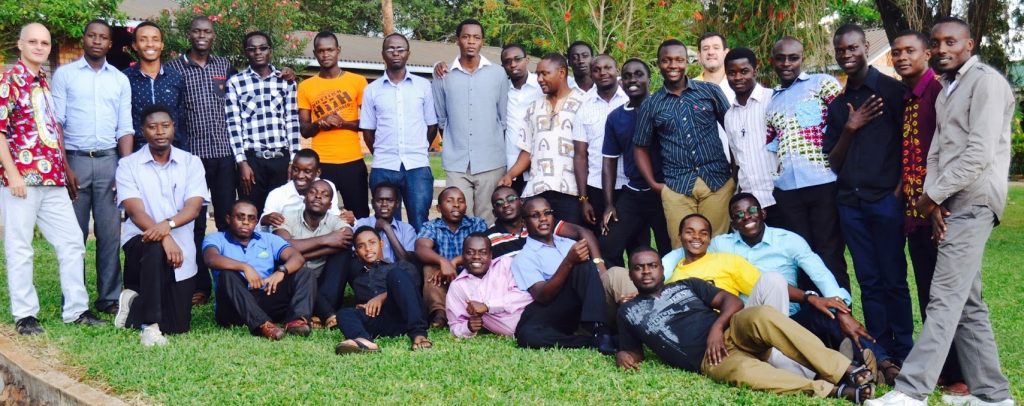
The real formation can then start with the first phase. It often gathers candidates from neighbouring countries. They are confronted to full international life from the second phase onwards (Spiritual Year). During the third phase (or stage), they are faced with the learning of a new language in a foreign country. Systematically, they are sent out of their native land in order to face the challenge of new customs and manners of thinking. Some of them are really shocked when they see the habits and culture of their country of appointment. How is it possible to mistreat so badly the bodies of the dead? Is it at all possible that the child belongs to his mother’s family and not to his father’s? The word “culture shock” is sometimes overused when the candidates speak simply of a diet different from what they were used to, but in some cases they do face a real shock. In order to complete this already long journey, there remained formerly three years of theology, which have been lengthened to four, following instructions from the higher authorities. In all, we must now count a minimum of eleven years and some of these young men have already worked or spent a few years at university before joining us. It is rare for a candidate to be less than thirty years of age when he reaches ordination. Some might already be close to the mid-life crisis.
What are the main aspects of this training? It is a formation that addresses all the dimensions of a human person: the spiritual, of course, and the intellectual (very pronounced with all these years of higher education). It includes also the psycho-affective with the dimension of sexuality, and more practical aspects like driving license and gardening… Language learning and international community life are also important components of the formation received.
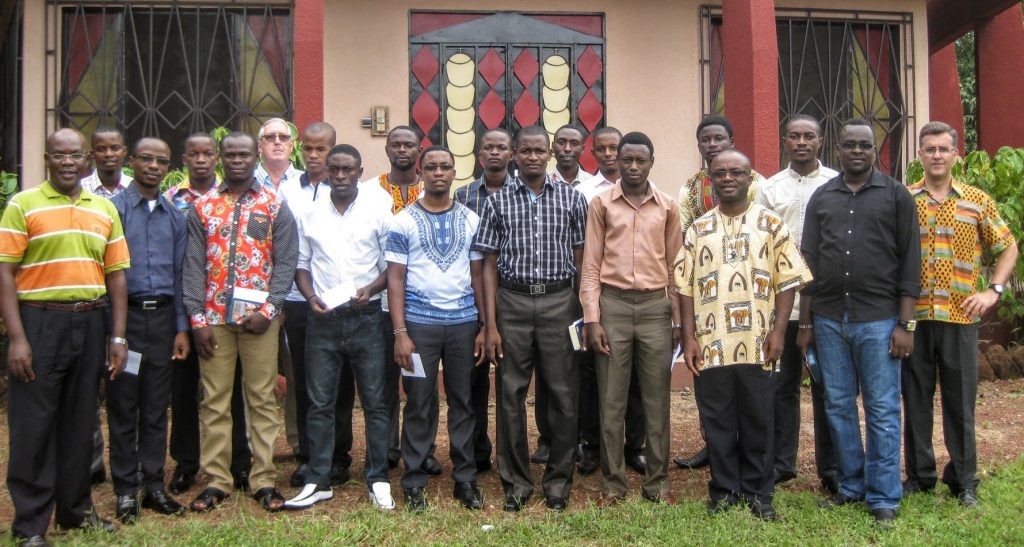
Our candidates are confronted to an important discernment : does God call me to become disciple of Jesus and to be sent like him? Priesthood understood as a service to the Church can attract some young men. This does not mean that they have the desire to follow and imitate Jesus in the radicalism of his commitment to the service of people. Jesus was well aware of being sent by the Father. He left his Father’s house to go and live in Palestine. Our candidates are also called to leave their country of origin, their families and common landmarks to become “strangers” elsewhere. Jesus lived a radical obedience to his Father, a humility that refused titles and places of honour. His heart was filled with his Father’s love. In the service of his brothers and sisters, he never married. He chose to live simply in a country that did not know the luxury of big capitals. His relations with his brothers and sisters were full of compassion and forgiveness, as Pope Francis keeps on reminding us. It is the commitment our candidates are facing. Attraction to the priesthood does not necessarily mean willingness to follow Jesus in his compassion, humility, service, and chastity…
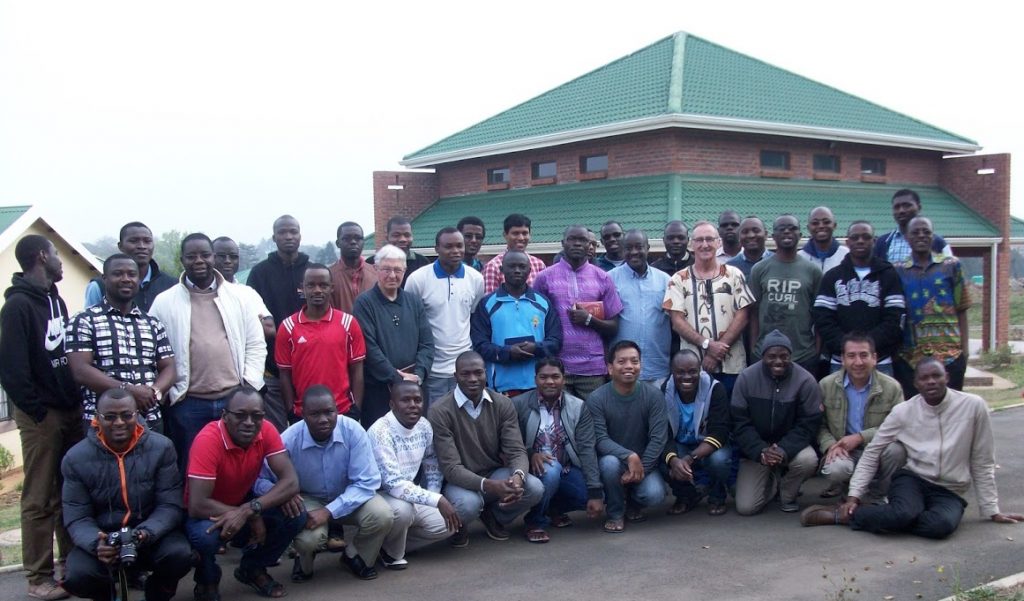
“Lord, where do you want me to go?” That is the question our candidates have to answer and our training aims at giving them all they need in order to answer it properly. Not only do they receive tools like introduction to prayer, spiritual Direction, retreats of eight and even thirty days, libraries but, in as far as possible, they are placed in the circumstances that will favour such a discernment. They have more than ten years to find the answer. Many realize they are not willing or not able to live such a commitment and return home. They might give great service to their local Church. Out of a hundred young men who start this journey of discernment of over ten years, between twenty and thirty reach the end and permanent commitment. This is hardly surprising because, between the desert, tropical forests, slums and poor suburbs, our life is not easy.
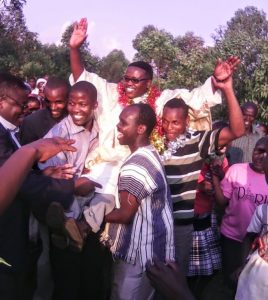
Where do our candidates come from? At 90%, they are Africans according to the prophecy of our founder that Africa would be evangelized in depth by the Africans themselves. The list of their countries of origin and the languages they speak is rather impressive. A few are not from Africa. There are some Poles, Filipinos, Indians, North or South Americans. Sometimes a youngster from the Western world finds us on the net and asks to join us. The first years of formation are usually spent in one’s own or a neighbouring country. The spiritual year takes place in Kasama in northern Zambia, in Arusha, west of Kilimanjaro and in Bobo, Burkina Faso. The period of apostolic training will take place somewhere between Algiers and Johannesburg. One or the other might even leave the African continent and have the chance to compare the slums of Nairobi and Kinshasa to those of Brazil. Theology is done in Africa except for some candidates appointed to Jerusalem.
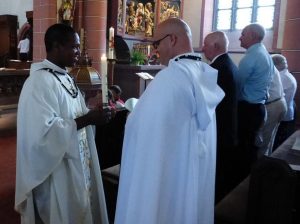
This is a brief description of the formation among the Missionaries of Africa. It is demanding but beautiful. It is not perfect but it is about the best we can give with the resources we have. It allows our young men to be confronted to themselves, to blossom, to grow, to deepen their relationship with Jesus and mostly to answer the question: “Lord what do you want me to do with my life?
Jean-Michel Laurent, M.Afr.
Secrétaire à la Formation